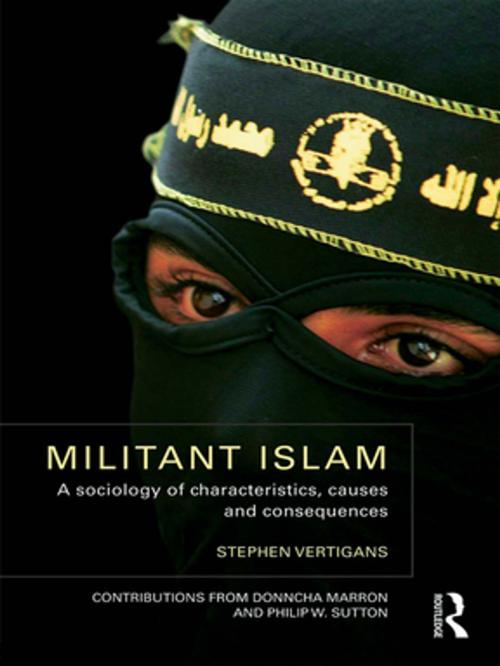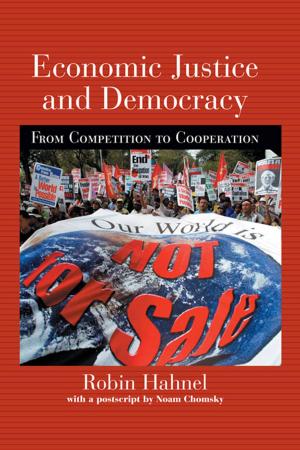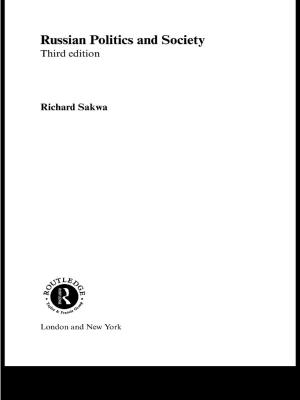Militant Islam
A sociology of characteristics, causes and consequences
Nonfiction, Social & Cultural Studies, Political Science, Politics, Regional Planning, Religion & Spirituality, Middle East Religions, Islam| Author: | Stephen Vertigans | ISBN: | 9781134126385 |
| Publisher: | Taylor and Francis | Publication: | October 30, 2008 |
| Imprint: | Routledge | Language: | English |
| Author: | Stephen Vertigans |
| ISBN: | 9781134126385 |
| Publisher: | Taylor and Francis |
| Publication: | October 30, 2008 |
| Imprint: | Routledge |
| Language: | English |
Militant Islam provides a sociological framework for understanding the rise and character of recent Islamic militancy. It takes a systematic approach to the phenomenon and includes analysis of cases from around the world, comparisons with militancy in other religions, and their causes and consequences.
The sociological concepts and theories examined in the book include those associated with social closure, social movements, nationalism, risk, fear and ‘de-civilising’. These are applied within three main themes; characteristics of militant Islam, multi-layered causes and the consequences of militancy, in particular Western reactions within the ‘war on terror’. Interrelationships between religious and secular behaviour, ‘terrorism’ and ‘counter-terrorism’, popular support and opposition are explored. Through the examination of examples from across Muslim societies and communities, the analysis challenges the popular tendency to concentrate upon ‘al-Qa’ida’ and the Middle East.
This book will be of interest to students of Sociology, Political Science and International Relations, in particular those taking courses on Islam, religion, terrorism, political violence and related regional studies.
Militant Islam provides a sociological framework for understanding the rise and character of recent Islamic militancy. It takes a systematic approach to the phenomenon and includes analysis of cases from around the world, comparisons with militancy in other religions, and their causes and consequences.
The sociological concepts and theories examined in the book include those associated with social closure, social movements, nationalism, risk, fear and ‘de-civilising’. These are applied within three main themes; characteristics of militant Islam, multi-layered causes and the consequences of militancy, in particular Western reactions within the ‘war on terror’. Interrelationships between religious and secular behaviour, ‘terrorism’ and ‘counter-terrorism’, popular support and opposition are explored. Through the examination of examples from across Muslim societies and communities, the analysis challenges the popular tendency to concentrate upon ‘al-Qa’ida’ and the Middle East.
This book will be of interest to students of Sociology, Political Science and International Relations, in particular those taking courses on Islam, religion, terrorism, political violence and related regional studies.















